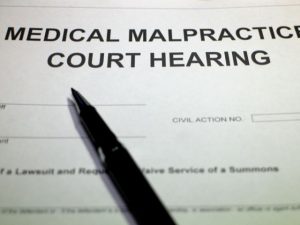Five Legal Issues in Nursing
These five legal issues in nursing are liable to registered nurses working in any healthcare setting:
- Negligence or Malpractice
- Patient confidentiality
- Defamation
- Battery
- Mandatory reporting
Negligence or Malpractice
As the name shows negligence is referred to;
- Overlooking or lacking in due care
- Carelessness
- Deviation from the set standard of care
Malpractice and negligence are similar terms that are used interchangeably.
However, malpractice is a more specific term that only focuses on standards of care. Negligence can sometimes be unintentional but malpractice is considered intentional.
The law defines it as the “failure of a professional person in accordance with prevailing professional standards or failure to foresee the consequences of their actions.”
A registered nurse can be liable for negligence and malpractice when their actions result in serious mistakes.
For example; commitment of a medication error by administering the wrong medication, lack of provider notification, lack of communication, or forgetting to note the patient status. In such scenarios, a nurse can be liable for malpractice allegations.
Patient Confidentiality
Health Insurance Probability and Accountability Act (HIPAA) 1996, applies to nurses. This act protects patients’ confidential electronic information and allows patients to control their identifiable health information.
A nurse patient-relationship is one-to-one, which makes a nurse privy to a variety of patient’s health records. According to the Code of Ethics for nurses, a nurse has to maintain the confidentiality and privacy of patients’ electronic data, insurance records, or other health-related records.
If a nurse fails to protect this information or share it with any unauthorized individual through any platform, then he/she will have to face legal actions.
Defamation
Defamation is referred to “making some accusatory or false statements”.
These statements can be libel i.e., written statements or slanders.
The example; making fun of a colleague, patient, or supervisor on social media, character assassination, or gossiping about false claims that can harm someone’s reputation.









